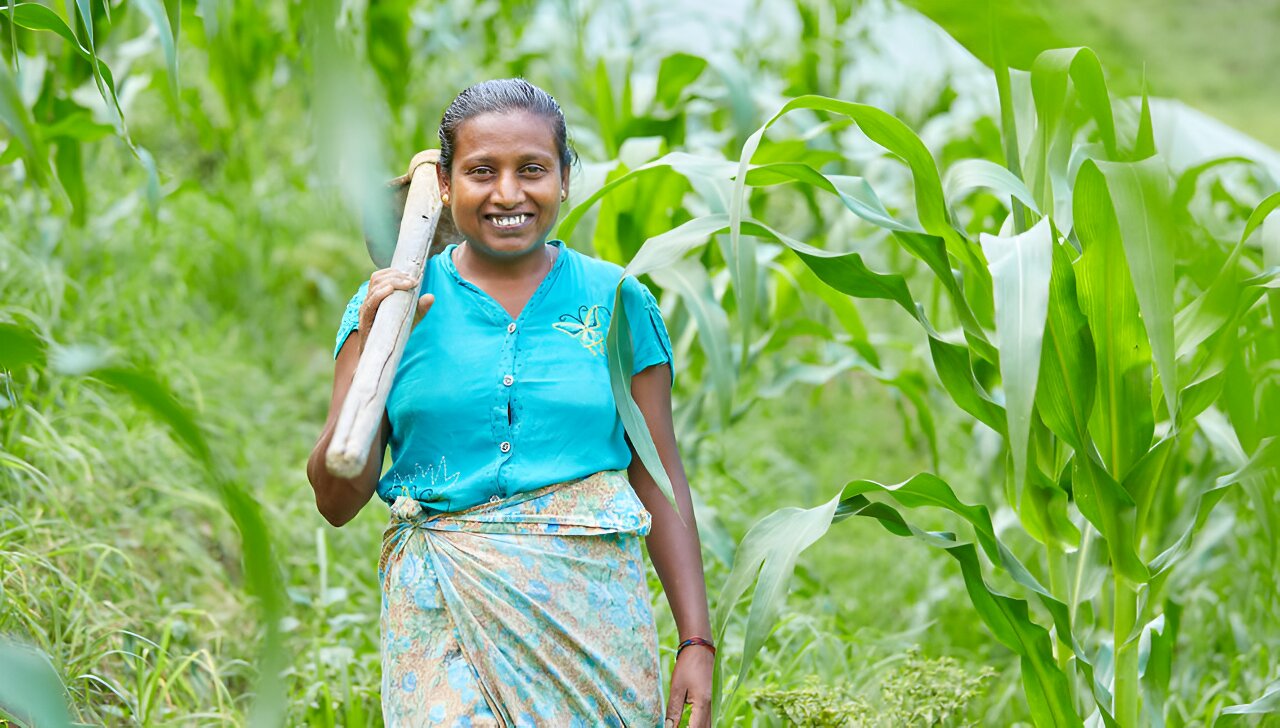

Countries must act swiftly following a landmark declaration on sustainable agriculture and food systems at COP28 to protect farmers and vulnerable groups from the effects of climate change, research leaders urge.
In the first days of the UN climate summit in Dubai, 134 world leaders signed the COP28 UAE Declaration on Sustainable Agriculture, Resilient Food Systems and Climate Action—the first of its kind—the COP presidency announced last Friday (1 December).
The statement promises to scale up adaptation activities to reduce the vulnerability of farmers, fisherfolk, and other food producers to the impacts of climate change.
The global community has mobilized more than US$2.5 billion to support the food-climate agenda, the COP28 Presidency also announced.
“This declaration gives a political signal to transform agricultural systems to face climate change, and it is good that many countries have announced their financial contributions to activate it,” said Zitouni Ould-Dada, deputy director for climate change, biodiversity and environment at the UN Food and Agriculture Organization (FAO).
“It includes important elements to help countries and small farmers by providing technical assistance, supporting innovation, and improving financing.
“But what we need now is to move from … statements to implementation [in order] to quickly protect affected communities and marginalized groups such as small farmers and women from the impact of climate change on agriculture, and for the emergence of many projects that help support food security to confront climate change.”
Smallholder farmers in the global South are among those most affected by climate change and women make up almost half of this workforce.
“The main goal of the declaration is to increase investments in technologies and approaches that will help small-scale farmers and fisherfolks build resilience in the face of climate shocks,” said Aditi Mukherji, director of the Climate Change Adaptation and Mitigation Impact Action Platform at CGIAR.
“This includes the populations most affected by climate change, like women, children, and indigenous people.”
Investing in innovation
The UAE announced last week that it had joined CGIAR, a global research partnership dedicated to transforming food, land, and water systems in a climate crisis.
The country also unveiled a new partnership with the Bill and Melinda Gates Foundation, with a pledge of US$200 million towards food systems, agriculture innovation, and climate action.
“At CGIAR we work on a range of solutions to combat climate change, from climate-resilient crop breeds that can withstand droughts, floods, salinity, and extreme temperatures, to new tools and technologies for smallholder farmers like satellite-based crop monitoring and AI-based plant disease detection,” said Mukherji.
“Many of these technologies are ready to scale but need additional finance to do so.
“By centering food systems in climate discussions, we hope that more finance will flow into this space and there will be more investment in innovations that can help smallholder farmers.”
She said the declaration was not an agreement but a statement of “intent.”
“As such there is no firm deadline, though the vision is to make progress toward these goals by 2030, when the SDGs also must be achieved,” she added.
“More funding is absolutely needed. That’s why CGIAR has launched an investment case to secure US$4 billion for our new research portfolio, to support more innovation for sustainable, resilient, and equitable food systems.”
The declaration says that countries will work on strengthening the integrated management of water in agriculture and food systems at all levels to ensure sustainability and reduce adverse impacts on communities.
According to Rachael McDonnell, deputy director general for research at the CGIAR International Water Management Institute, integrated water management means balancing available water with the needs of the population across many different sectors, fairly and inclusively.
“Seventy percent of the world’s water is used in agriculture,” she said.
Nature-based solutions
Signatories to the declaration will aim to maximize climate and environmental benefits by conserving, protecting, and restoring land and natural ecosystems, enhancing soil health and biodiversity, and shifting from higher greenhouse gas-emitting practices to more sustainable production and consumption approaches.
Biodiversity and climate are two sides of the same coin,” says Cargele Masso at the CGIAR International Institute of Tropical Agriculture.
“In food systems, climate adaptation and mitigation deeply depend on protecting lands, restoring ecosystems, and preserving biodiversity, which in addition are a must for food and nutrition security and livelihoods of millions of smallholder farmers worldwide,” Masso said.
He said “system-thinking” and nature-based approaches such as agroecology will be critical to responding to the climate crisis.
“No doubt that the declaration, coupled with the Kunming-Montreal global biodiversity framework, will prompt more actions to prioritize investment for land protection, restoration of ecosystems, as well as maintaining, enhancing, and restoring biodiversity for effective climate adaptation and mitigation, particularly in food systems,” he added.
Citation:
COP28: Countries promise action on food and farming (2023, December 11)
retrieved 11 December 2023
from https://phys.org/news/2023-12-cop28-countries-action-food-farming.html
This document is subject to copyright. Apart from any fair dealing for the purpose of private study or research, no
part may be reproduced without the written permission. The content is provided for information purposes only.





